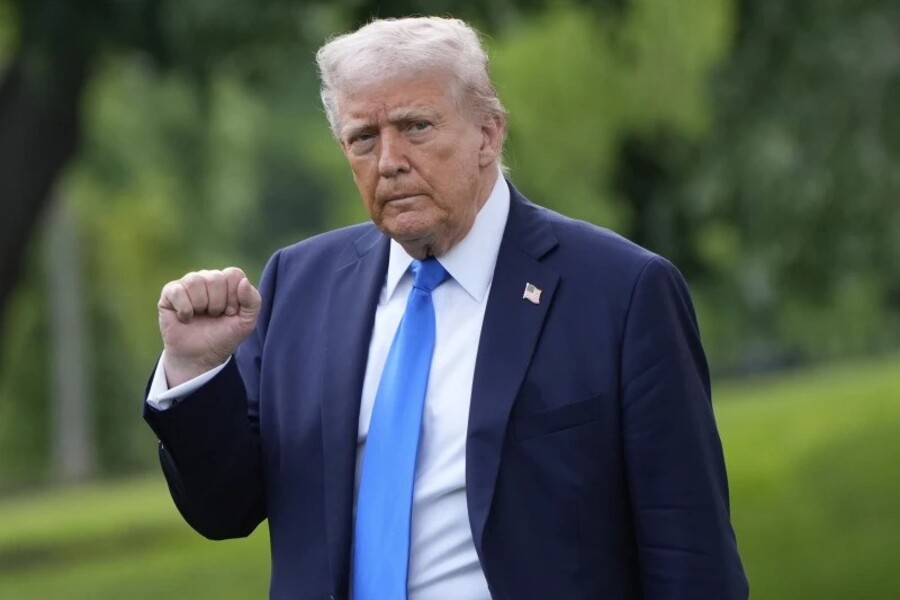In a dramatic escalation of tensions between the Trump administration and public media, President Donald Trump signed an executive order last week that directs the federal government to eliminate funding for PBS and NPR — a move that public broadcasting leaders say threatens the very survival of local stations, especially in rural and underserved communities.
“This is different. We have never seen a circumstance like this,” said PBS CEO Paula Kerger in a pointed interview on Face the Nation on Sunday. “They’re coming after us in many different ways.”
The executive order instructs the Corporation for Public Broadcasting (CPB) — the nonprofit entity that distributes federal funding to public media — to cease disbursement of funds to PBS and NPR. The order justifies the decision by accusing the two organizations of providing “biased and partisan news coverage” and claims that public funding for media compromises journalistic independence. It reads: “Americans have the right to expect that if their tax dollars fund public broadcasting at all, they fund only fair, accurate, unbiased, and nonpartisan news coverage.”
A Blow to Local Stations, Particularly Rural America
Kerger emphasized the real-world consequences of the executive order, explaining that while PBS receives about 15% of its funding from the federal government overall, smaller stations rely much more heavily on these funds, with some depending on public money for as much as 40% to 50% of their budgets.
“For them, it’s existential,” Kerger warned. “What’s at risk are our public television and public radio stations across the country.”
NPR CEO Katherine Maher, who also appeared on Face the Nation, echoed those concerns. She noted that while NPR itself is not directly dependent on federal funding, the vast network of 246 member stations — especially those in rural and remote communities — could face irreparable harm. “The immediate damage is to local stations,” she said. “For many Americans, these stations provide the sole local source of news.”
Maher added that NPR is evaluating all available options to challenge the executive order, including potential legal avenues. “The impact of this could really be devastating,” she said.
Educational and Cultural Programming in Jeopardy
Beyond journalism, Kerger said the executive order could affect critical educational programming, particularly for children. She cited Department of Education funding, which supports the creation of educational content like Sesame Street and Mister Rogers’ Neighborhood. These programs were designed to bridge educational gaps for children without access to formal pre-kindergarten.
“That’s the idea — to make sure that children who do not have access to a full array of resources have the opportunity to learn and develop skills,” Kerger said. “That’s what’s at risk.”
Accusations of Bias Rejected by Public Media Leaders
The White House has accused both PBS and NPR of failing to present unbiased coverage, stating in the order that government-funded journalism is “outdated and unnecessary.” However, both Kerger and Maher firmly rejected the accusation.
Maher said NPR’s newsroom is deeply committed to nonpartisan journalism, highlighting the network’s decades-long history of in-depth and global reporting. “Our people report straight down the line,” she said. “And they do so with a mission very few other broadcast organizations have — which is a requirement to serve the entire public.”
Kerger likewise emphasized that PBS is committed to educational and cultural enrichment, not partisanship. “We are pushing back very hard,” she stated. “Because this is not just about PBS or NPR — this is about the communities we serve.”
What’s Next?
The executive order adds to growing concerns within the public media community about broader efforts by the Trump administration to defund or restrict independent journalism. Public broadcasting leaders are preparing for potential clawbacks of previously appropriated funds and additional regulatory pressure, such as corporate sponsorship challenges through the Federal Communications Commission (FCC).
As legal and political responses are considered, both PBS and NPR are calling on viewers, listeners, and lawmakers to recognize the high stakes.
“The heart of public broadcasting is service,” Maher concluded. “We are here to ensure that everyone, regardless of income or geography, has access to trustworthy news, educational programming, and cultural enrichment. That mission is now in serious jeopardy.”
User Intent Summary:
Readers looking to understand the impact of Trump’s executive order will learn that it poses an immediate threat to the financial viability of local PBS and NPR stations, especially in rural areas. It could also derail vital educational programming for children. Public broadcasting leaders are preparing to fight back through advocacy and legal means, arguing that their mission — nonpartisan, community-centered journalism and education — is being mischaracterized for political reasons.
Would you like a short headline and meta description to go with this?


